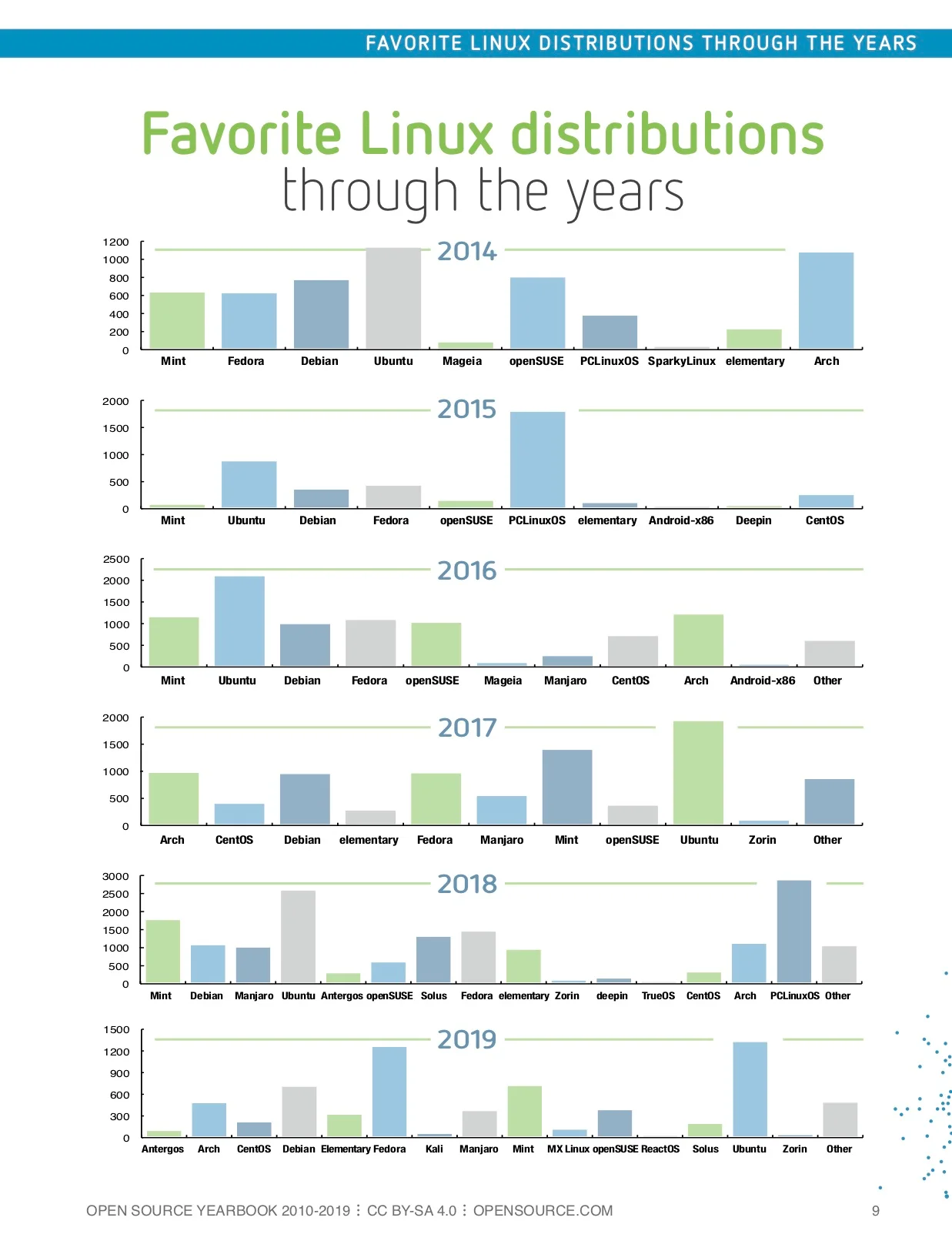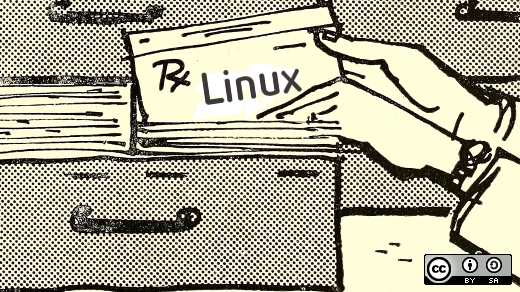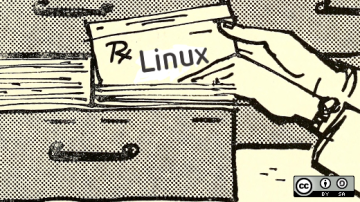What's your favorite Linux distribution? Take our 7th annual poll. Some have come and gone, but there are hundreds of Linux distributions alive and well today. The combination of distribution, package manager, and desktop creates an endless amount of customized environments for Linux users.
We asked the community of writers what their favorite is and why. While there were some commonalities (Fedora and Ubuntu were popular choices for a variety of reasons), we heard a few surprises as well. Here are a few of their responses:
"I use the Fedora distro! I love the community of people who work together to make an awesome operating system that showcases the greatest innovations in the free and open source software world." — Matthew Miller
"I use Arch at home. As a gamer, I want easy access to the latest Wine versions and GFX drivers, as well as large amounts of control over my OS. Give me a rolling-release distro with every package at bleeding-edge." —Aimi Hobson
"NixOS, with nothing coming close in the hobbyist niche." —Alexander Sosedkin
"I have used every Fedora version as my primary work OS. Meaning, I started with the first one. Early on, I asked myself if there would ever come a time when I couldn't remember which number I was on. That time has arrived. What year is it, anyway?" —Hugh Brock
"I usually have Ubuntu, CentOS, and Fedora boxes running around the house and the office. We depend on all of these distributions for various things. Fedora for speed and getting the latest versions of applications and libraries. Ubuntu for those that need easy of use with a large community of support. CentOS when we need a rock-solid server platform that just runs." —Steve Morris
"My favorite? For the community, and how packages are built for the distribution (from source, not binaries), I choose Fedora. For pure breadth of packages available and elegance in how packages are defined and developed, I choose Debian. For documentation, I choose Arch. For newbies that ask, I used to recommend Ubuntu but now recommend Fedora." —Al Stone
We've been asking the community this question since 2014. With the exception of PCLinuxOS taking the lead in 2015, Ubuntu tends to be the fan-favorite from year to year. Other popular contenders have been Fedora, Debian, Mint, and Arch. Which distribution stands out to you in the new decade? If we didn't include your favorite in the list of choices, tell us about it in the comments.
Here's a look at your favorite Linux distributions throughout the last seven years. You can find this in our latest yearbook, Best of a decade on Opensource.com. To download the whole eBook, click here!

opensource.com










48 Comments